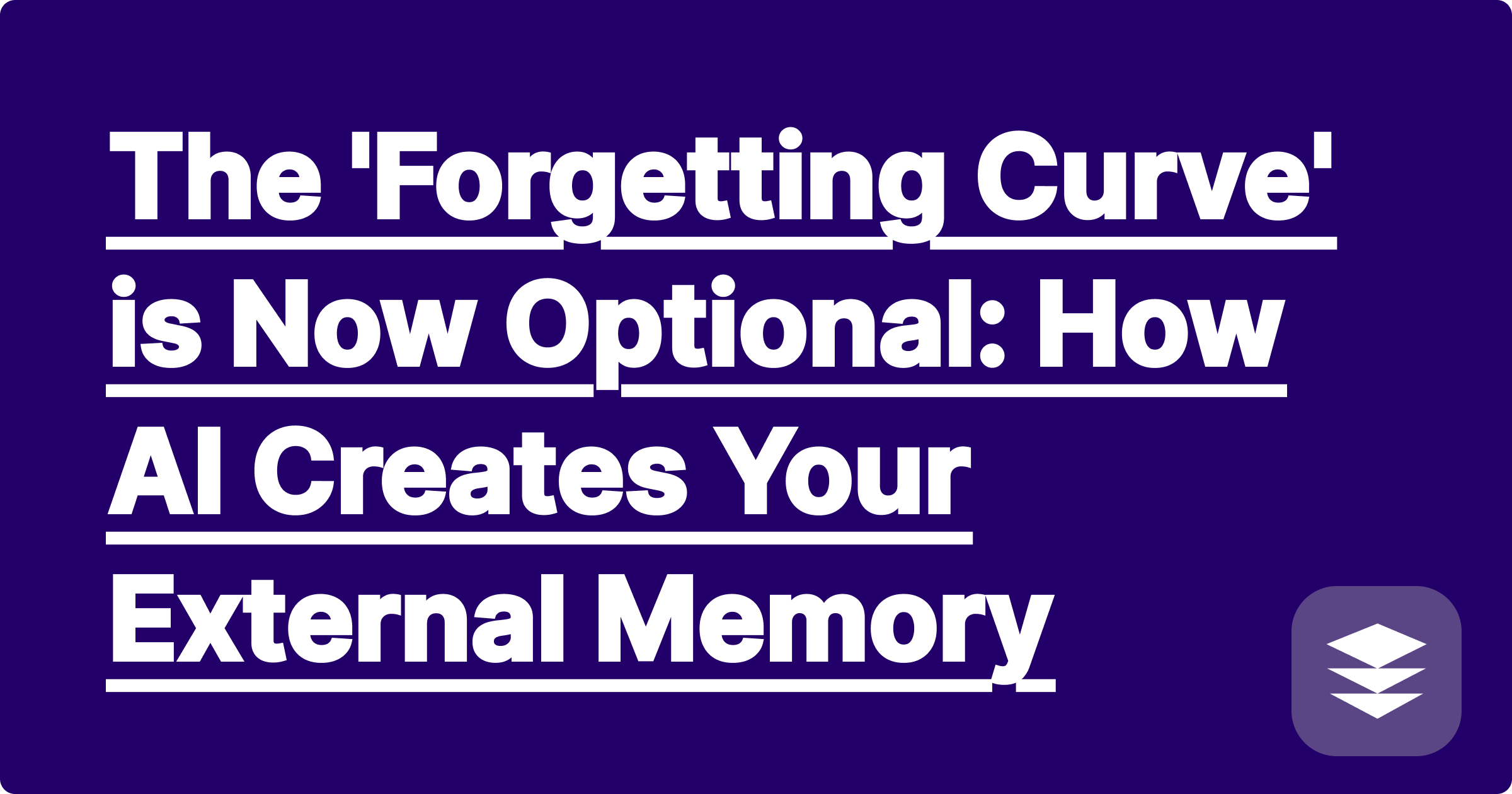
In the 19th century, the psychologist Hermann Ebbinghaus discovered a devastating truth about the human brain: we forget things at an astonishing rate. His "forgetting curve" shows that without reinforcement, we can lose more than 50% of newly learned information within a single day, and over 80% within a week. For students, this curve is a constant, uphill battle. The notes you took on Monday are a faint memory by Friday, forcing a stressful cycle of re-learning and cramming before every exam.
For decades, the only way to beat the forgetting curve was through brute-force repetition: re-reading notes, manually creating flashcards, and sticking to a rigid spaced repetition schedule. This works, but it's incredibly time-consuming and relies on immense self-discipline. But what if forgetting wasn't a battle you had to fight with your own internal memory? What if you could simply... outsource it?
This is the external brain concept brought to life by modern AI. A tool like GPAI Cheatsheet is not just a study aid; it's a perfect, searchable, external memory system that never forgets. It acts as an intelligent note taker that captures knowledge, and a cheatsheet builder that allows you to recall it instantly.
[Image: An animation of a human brain with a "leaky bucket" icon, losing information over time. An arrow points to the GPAI icon, which is shown as a solid, secure "digital brain" that retains everything. Alt-text: A visual explaining how to beat the forgetting curve with an AI external brain.]
This shifts the focus of learning. The critical skill is no longer your ability to retain vast amounts of information, but your ability to build and query your external knowledge base effectively. A GPAI Solver can even use this knowledge base to solve new problems. This is a far more practical and sustainable model for lifelong learning in an age of information abundance.
By creating a reliable external memory, you free your mind to do what it does best: think, create, and make connections. The anxiety of "Will I remember this for the final?" disappears. You know the information is safe, perfectly organized, and instantly accessible whenever you need it. You have effectively made the forgetting curve optional.
A: You are still using your memory, just for higher-level tasks. You're not memorizing raw facts; you're memorizing how to access and apply those facts. You are training your "executive function" skills—knowing what question to ask and how to use the answer—which is a more valuable form of memory in the 21st century.
A: A folder of files is a "dumb" archive. You still have to manually open and read each file to find what you're looking for. An AI-powered knowledge base like GPAI Cheatsheet is a "smart" archive. It understands the content of your files, allowing you to ask questions and get synthesized answers from across your entire library instantly.
Your education is too valuable to be lost to the natural process of forgetting. By building an AI-powered external brain, you can capture, organize, and retain your knowledge not just for the next exam, but for your entire career and life.
[Start building your perfect external memory today. Use GPAI Cheatsheet and never forget what you've learned. Sign up for 100 free credits.]
Is 'Knowing' Obsolete? The Future of Education in the Age of AI
How AI Can Help Us Rediscover the 'Play' in Learning
Your Personal 'Anti-Bias' Assistant: Using AI to Challenge Your Own Assumptions
The Ethics of 'Perfect' Submissions: A Conversation About the 'Humanizer'
Beyond STEM: How an AI Solver Can Help with Philosophy and Logic Proofs
The 'Forgetting Curve' is Now Optional: How AI Creates Your External Memory
Can an AI Have a 'Eureka!' Moment? Exploring a Model's Inner Workings
From Information Scarcity to Abundance: A New Skillset is Required
Just Trust Me, Bro': Why Showing Your Work (with AI) Builds Credibility